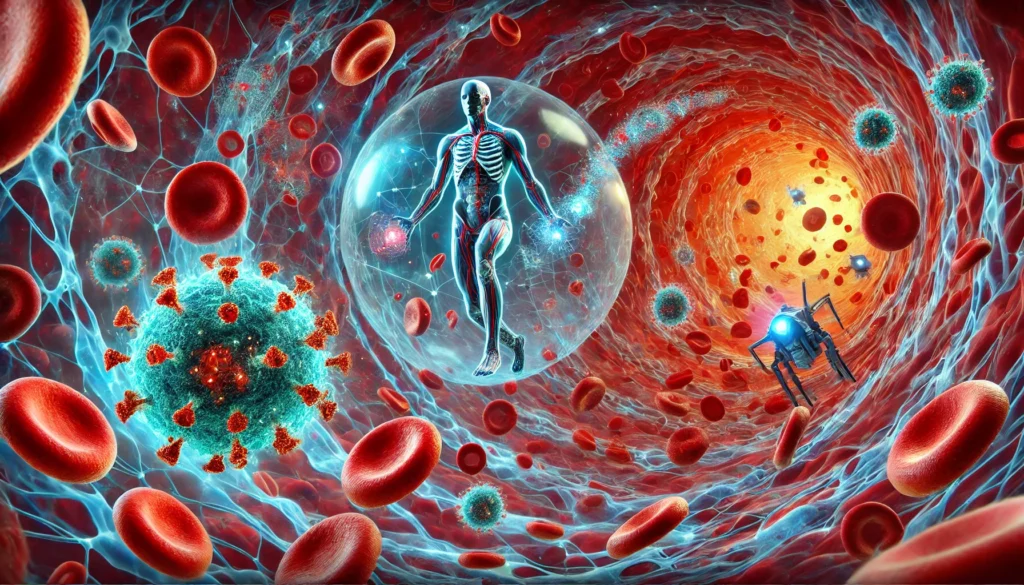Introduction
Cancer remains one of the most pressing health challenges globally, with millions of lives affected each year. However, the landscape of cancer treatment is continuously evolving, with groundbreaking pharmacological advancements offering new hope. The latest cancer treatment options focus on precision medicine, immunotherapy, and targeted therapies that enhance patient survival and quality of life. With recent cancer treatment breakthroughs, researchers and clinicians are increasingly optimistic about improving patient outcomes and moving closer to a cure. This article explores the newest cancer treatment advancements, including innovative drug therapies, novel treatment mechanisms, and emerging trends in oncological pharmacology.
You May Also Like: List of New Medications: Breakthrough Treatments and Innovations in Modern Medicine
The Evolution of Cancer Treatment: A Historical Perspective
Historically, cancer treatment was limited to surgery, radiation, and chemotherapy—methods that often came with significant side effects and limited efficacy. The introduction of targeted therapies and immunotherapy in recent decades revolutionized the field, shifting the focus toward personalized treatment approaches. The newest cancer treatment developments emphasize precision, tailoring therapies to individual genetic profiles and tumor characteristics. This paradigm shift has significantly improved the success rates of various cancer therapies, minimizing adverse effects while enhancing efficacy.
Immunotherapy: Revolutionizing Cancer Treatment
Immunotherapy has emerged as a transformative force in oncology, leveraging the body’s immune system to target and destroy cancer cells. Checkpoint inhibitors, such as pembrolizumab and nivolumab, have demonstrated remarkable efficacy in treating cancers like melanoma, lung cancer, and Hodgkin’s lymphoma. These drugs work by blocking immune checkpoints that cancer cells exploit to evade detection. Another promising approach is CAR-T cell therapy, which involves genetically modifying a patient’s T-cells to attack cancer cells. Recent cancer treatment breakthroughs in immunotherapy continue to expand its applications, offering hope for cancers previously deemed untreatable.
Targeted Therapies: Precision Medicine in Oncology
Targeted therapies represent one of the most significant advancements in cancer pharmacology. Unlike traditional chemotherapy, which attacks all rapidly dividing cells, targeted therapies focus on specific molecular pathways essential for cancer cell survival. Tyrosine kinase inhibitors (TKIs), such as imatinib for chronic myeloid leukemia, have revolutionized treatment protocols, dramatically increasing survival rates. More recently, new therapy for cancer has emerged in the form of antibody-drug conjugates (ADCs), which combine monoclonal antibodies with cytotoxic agents to precisely target cancer cells while sparing healthy tissue.

The Role of Epigenetics in Cancer Therapy
Epigenetic modifications play a crucial role in cancer progression, and targeting these mechanisms has led to novel treatment options. Drugs like azacitidine and decitabine, which inhibit DNA methylation, have shown efficacy in myelodysplastic syndromes and acute myeloid leukemia. Histone deacetylase (HDAC) inhibitors, such as vorinostat, modulate gene expression to induce cancer cell death. Ongoing research continues to explore how epigenetic therapy can be integrated with existing treatment regimens to enhance efficacy and reduce resistance.
Advances in Hormone Therapy for Cancer
Hormone therapy remains a cornerstone in the treatment of hormone-sensitive cancers such as breast and prostate cancer. The development of selective estrogen receptor degraders (SERDs) and androgen receptor inhibitors has provided more effective alternatives to traditional hormone-blocking therapies. New developments in cancer treatments include the combination of hormone therapy with CDK4/6 inhibitors, which have demonstrated superior outcomes in metastatic breast cancer. These advancements highlight the importance of precision medicine in optimizing treatment strategies.
Nanotechnology in Cancer Drug Delivery
Nanotechnology is revolutionizing cancer treatment by improving drug delivery mechanisms. Nanoparticle-based drug carriers enhance the bioavailability and targeting of chemotherapeutic agents, reducing systemic toxicity. Liposomal formulations of drugs like doxorubicin have demonstrated improved efficacy and reduced cardiotoxicity in patients with advanced cancers. The integration of nanomedicine with immunotherapy and gene therapy represents an exciting frontier in oncological pharmacology.
The Future of Cancer Vaccines
Cancer vaccines are gaining traction as a promising approach to both treatment and prevention. Personalized cancer vaccines, which use neoantigens derived from a patient’s tumor, stimulate an immune response tailored to the individual’s cancer. The recent success of mRNA vaccine technology, as seen in COVID-19 vaccines, has accelerated research into mRNA-based cancer vaccines. Clinical trials are underway to evaluate the efficacy of these vaccines in melanoma, lung cancer, and pancreatic cancer.
Overcoming Drug Resistance in Cancer Treatment
One of the biggest challenges in oncology is drug resistance, where cancer cells adapt and become unresponsive to treatment. Researchers are exploring combination therapies and novel drug formulations to overcome resistance mechanisms. The development of next-generation TKIs, bispecific antibodies, and epigenetic modulators offers new hope in tackling resistant cancers. Personalized treatment strategies, guided by genomic profiling, are essential in addressing this issue.
The Impact of Artificial Intelligence in Cancer Pharmacology
Artificial intelligence (AI) is playing an increasingly important role in drug discovery and treatment optimization. AI-driven algorithms analyze vast datasets to identify potential drug candidates and predict patient responses to specific therapies. Machine learning models are also improving early cancer detection and prognostication, allowing for more personalized treatment planning. The integration of AI with precision medicine is set to redefine cancer care in the coming years.

Frequently Asked Questions (FAQ) on the Latest Cancer Treatment Breakthroughs
1. What is the most promising new therapy for cancer?
The field of oncology has seen significant breakthroughs, and one of the most promising new therapies for cancer is tumor-infiltrating lymphocyte (TIL) therapy. This approach enhances the body’s immune response by extracting a patient’s own immune cells from the tumor, expanding them in a lab, and reinfusing them to attack cancer. Recent trials have shown TIL therapy to be particularly effective in treating melanoma, lung cancer, and some rare forms of carcinoma. Unlike traditional treatments, this method is highly personalized and may reduce the risk of cancer recurrence. With continuous research and clinical advancements, this therapy represents a significant step forward in personalized cancer medicine.
2. How do recent cancer treatment breakthroughs improve survival rates?
Recent cancer treatment breakthroughs have focused on precision medicine, ensuring that treatments are tailored to the genetic makeup of a patient’s tumor. Advances in targeted therapies, such as tyrosine kinase inhibitors and monoclonal antibodies, have significantly increased survival rates in cancers like leukemia, breast cancer, and lung cancer. Immunotherapy, particularly checkpoint inhibitors, has also demonstrated long-term benefits for patients with previously untreatable cancers. Moreover, the integration of artificial intelligence in oncology has optimized treatment selection, further improving outcomes. These advances underscore the ongoing efforts to refine and personalize cancer treatment, making therapies more effective and reducing the likelihood of resistance.
3. What role does nanotechnology play in the newest cancer treatments?
Nanotechnology is revolutionizing cancer treatment by enhancing drug delivery and reducing side effects. One of the most notable applications is the use of nanoparticle-based drug carriers that allow for targeted delivery of chemotherapy, minimizing harm to healthy cells. Liposomal doxorubicin, for instance, has been approved for use in several cancers, demonstrating improved efficacy and reduced toxicity compared to traditional chemotherapy. Researchers are also exploring nanocarriers that deliver gene therapy directly to cancerous tissues, potentially leading to a new cure for cancer. As nanotechnology continues to evolve, its role in oncology is expected to expand, offering patients safer and more effective treatment options.
4. Is cancer research looking promising for a universal cure?
Cancer research is advancing rapidly, with promising developments in immunotherapy, gene editing, and personalized medicine. While no single cure for all types of cancer exists, recent cancer cure news highlights breakthroughs such as CRISPR gene-editing technology, which shows potential in correcting cancer-related mutations. Additionally, combination therapies integrating immunotherapy with traditional treatments have led to unprecedented remission rates in several cancer types. Researchers are also investigating pan-cancer treatments that target common molecular pathways shared across different cancers. Although challenges remain, the scientific community is optimistic that these innovations will lead to more effective and lasting treatments.
5. What are the latest advances in hormone therapy for cancer?
Hormone therapy continues to evolve with the introduction of selective estrogen receptor degraders (SERDs) and next-generation androgen receptor inhibitors. These drugs are proving more effective in treating hormone-sensitive cancers like breast and prostate cancer. Recent cancer treatment advancements also include combining hormone therapy with CDK4/6 inhibitors, which prevent cancer cell division and growth. New therapies for treating cancer are being developed to overcome resistance to existing hormone-blocking drugs. With continued innovation, hormone therapy remains a vital component in the fight against hormone-driven malignancies.
6. How are AI and big data influencing new cancer breakthroughs?
Artificial intelligence (AI) and big data are playing a transformative role in cancer research and treatment. AI-driven models can analyze vast amounts of genetic and clinical data to identify optimal treatments tailored to individual patients. This approach has led to the discovery of new medicines for cancer that target specific mutations. Machine learning algorithms are also being used to improve early cancer detection and predict treatment responses. Moreover, AI is streamlining drug discovery, accelerating the development of new cancer treatments. As technology continues to evolve, AI is expected to further refine personalized oncology strategies.
7. What is the future of cancer vaccines?
Cancer vaccines are an emerging frontier in oncology, with several in development aimed at preventing and treating cancer. Personalized cancer vaccines, which stimulate the immune system to recognize tumor-specific antigens, have shown promise in clinical trials. The success of mRNA vaccine technology in combating COVID-19 has accelerated the development of mRNA-based cancer vaccines. Researchers are currently investigating vaccines for melanoma, lung cancer, and pancreatic cancer. While these vaccines are still in experimental stages, they represent an exciting avenue for the future of cancer treatment.
8. How are researchers addressing drug resistance in cancer treatments?
Drug resistance is a major challenge in oncology, but researchers are developing innovative strategies to overcome it. Combination therapies that use multiple drugs with different mechanisms of action have shown promise in preventing resistance. Recent cancer cure news highlights the role of bispecific antibodies, which target multiple cancer pathways simultaneously, reducing the likelihood of resistance. Epigenetic modulators are also being explored to restore the sensitivity of cancer cells to treatment. With continued research, overcoming drug resistance remains a top priority in cancer pharmacology.
9. What are the potential risks and side effects of the newest cancer treatments?
While the newest cancer treatments offer significant benefits, they also come with potential risks. Immunotherapy, for instance, can trigger immune-related side effects such as inflammation in healthy tissues. Targeted therapies, while precise, may still cause fatigue, skin reactions, and organ toxicity. New therapies for cancer are continually being refined to minimize adverse effects while maximizing efficacy. Patients undergoing experimental treatments should be closely monitored to manage any emerging side effects. Understanding these risks is crucial for balancing treatment benefits with patient safety.
10. How can patients access the latest cancer treatments and clinical trials?
Access to the latest cancer treatments often depends on a patient’s location, healthcare provider, and eligibility for clinical trials. Many leading cancer centers offer experimental therapies through clinical trials, which provide patients with access to cutting-edge treatments before they become widely available. Organizations such as the National Cancer Institute (NCI) and international research networks maintain databases of ongoing trials. Patients can also consult with oncologists specializing in experimental therapies to explore options. Staying informed through reputable sources ensures that patients can take advantage of the most recent cancer breakthroughs.

Conclusion
The rapid advancements in pharmacological cancer therapies are transforming the landscape of oncology. From immunotherapy and targeted treatments to nanotechnology and AI-driven solutions, the latest cancer cure news offers new hope for patients worldwide. While challenges such as drug resistance and treatment accessibility remain, ongoing research and innovation continue to drive progress. The future of cancer treatment is increasingly personalized, with novel approaches enhancing efficacy and minimizing side effects. As scientists and clinicians collaborate to refine these therapies, the goal of achieving a definitive cure for cancer becomes more attainable than ever before.
advanced cancer therapies, innovative oncology treatments, cutting-edge cancer research, breakthrough cancer medications, emerging cancer drug therapies, personalized cancer medicine, immunotherapy advancements, targeted cancer treatment, oncology precision medicine, experimental cancer drugs, gene therapy for cancer, AI in cancer treatment, nanomedicine for oncology, cancer vaccine development, overcoming cancer drug resistance, future of cancer pharmacology, cancer clinical trials, novel chemotherapy alternatives, epigenetic cancer treatments, hormone therapy innovations
Further Reading:
New approaches and procedures for cancer treatment: Current perspectives
Innovative approaches for cancer treatment: current perspectives and new challenges


